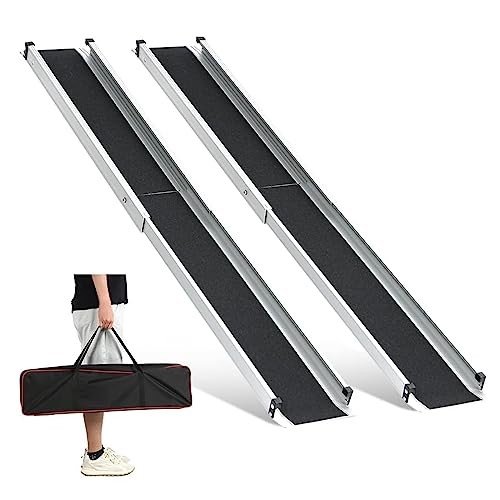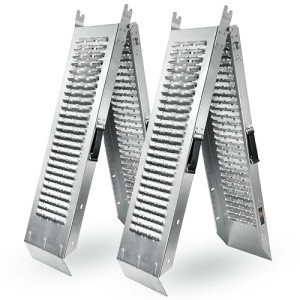Why Mobility Ramps Is Your Next Big Obsession
페이지 정보

본문
Mobility Ramps for Homes: Enhancing Accessibility and Independence
As society continues to develop towards inclusivity and ease of access, mobility ramps have actually become vital components in numerous homes. These ramps not only offer a means of entry for individuals with mobility obstacles however also promote self-reliance, security, and convenience. This post explores the various aspects of Mobility Ramps For Home (jobs.Sharedservicesforum.in) ramps for homes, guiding homeowners through their types, advantages, installation factors to consider, upkeep, and frequently asked concerns.

Comprehending Mobility Ramps
Mobility ramps are created to help with the motion of individuals utilizing wheelchairs, scooters, or other mobility aids. They make it possible for easier access to homes, garages, and exit points without the need for substantial physical effort or support.
Key Benefits of Mobility Ramps
Self-reliance: Mobility ramps empower individuals to go into and exit their homes without depending on support, fostering a sense of self-reliance.
Safety: A proper ramp minimizes the danger of falls and injuries that can take place when steering stairs.
Versatility: These ramps can be constructed for different environments and can be temporary or irreversible solutions.
Home Value: Installing a mobility ramp can increase the general value of a home as it promotes inclusivity.
Ease of Use: Designed for a variety of mobility levels, ramps accommodate wheelchairs, walkers, and people with limited mobility.
Kinds Of Mobility Ramps
Selecting the right mobility Handicap Ramp depends on particular needs, physical area, and budget. Here's an in-depth contrast of typical kinds of mobility ramps:
| Ramp Type | Description | Pros | Cons |
|---|---|---|---|
| Portable Ramps For Steps Electric Wheelchair Ramps | Lightweight, easily portable ramps, frequently made from aluminum. | Easy to store and move, perfect for temporary requirements. | Restricted weight capacity, might not be appropriate for irreversible use. |
| Threshold Ramps | Short ramps developed to bridge entryways or entrances. | Simple setup, beneficial for little height distinctions. | Not ideal for larger stairs or steep inclines. |
| Permanent Ramps | Built from wood, aluminum, or concrete, these ramps are implied for long-lasting usage. | Sturdy and durable, personalized to numerous lengths and heights. | More pricey and might need planning/building licenses. |
| Folding Ramps | Ramps that can fold for easy transportation or storage. | Storable and helpful for numerous usages. | Potentially less steady than permanent options. |
| Modular Ramps | Pre-fabricated areas that can be put together to develop a customized ramp style. | Easy to set up and rearrange, versatile to different spaces. | Might have a greater upfront cost compared to other ramps. |
Setup Considerations
Prior to including a mobility ramp to a home, numerous aspects require to be thought about to make sure ideal performance and safety:
Space Assessment: Measure the area where the ramp will be installed, representing existing structures and pathways.
Structure Codes: Familiarize yourself with regional building codes and policies to guarantee compliance, especially for irreversible ramps.
Slope Ratio: The Americans with Disabilities Act (ADA) recommends a slope ratio of 1:12 for wheelchairs. This means for each inch of vertical increase, there should be at least 12 inches of ramp run.
Product Selection: Choose a product that is resilient and weather-resistant to prolong the ramp's life-span.
Surface Texture: Ensure the ramp has a non-slip surface to decrease the danger of accidents, especially in inclement weather condition.
Handrails: Consider setting up handrails for additional support, especially on longer ramps or those with steeper inclines.
Upkeep of Mobility Ramps
Maintaining mobility ramps is important for making sure safety and longevity. Here are some pointers:
Regular Inspections: Inspect the ramp frequently for damage, wear, or loose bolts that may affect stability.
Cleaning up: Keep the ramp clear of particles, such as leaves and snow, to prevent slipping threats.
Surface area Repair: Address any surface area issues, such as breaking or splintering, in wooden ramps immediately.
Repaint if Necessary: For metal ramps, repainting can assist avoid rust and wear and tear.
Check Handrails: Ensure hand rails are securely secured and can support weight when required.
Regularly Asked Questions (FAQ)
1. Do I require a license to set up a mobility ramp?
Yes, depending upon local regulations, a license may be required, specifically for irreversible ramps. It's suggested to contact your local building authority.
2. How much does a mobility ramp cost?
The cost of mobility ramps differs commonly based on the type, materials, and installation requirements. Portable ramps can start at a couple of hundred dollars, while permanent ramps can range from ₤ 1,000 to ₤ 5,000 or more.
3. Can I set up a ramp myself?
While some portable ramps are easy to install, permanent ramps typically require professional installation to ensure safety and compliance with structure codes.
4. How do I identify the right slope for my ramp?
Follow the ADA guidelines of a 1:12 slope ratio for wheelchairs. Additionally, consider the specific needs of the user and the space offered.
5. What products are best for outdoor ramps?
Aluminum, dealt with wood, and concrete are popular alternatives for outdoor ramps due to their sturdiness and resistance to climate condition.

- 이전글15 Reasons Not To Ignore Renovating Conservatory 25.10.30
- 다음글구글찌라시 텔@adtopking [애드바다] 25.10.30
댓글목록
등록된 댓글이 없습니다.

